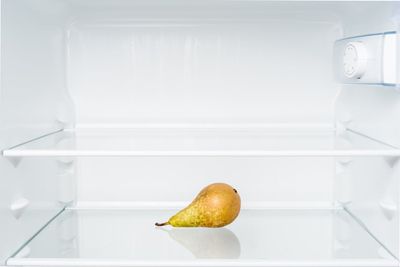Chilling Pears on the Tree
Why do pears need to be chilled? Pear trees enter a period of dormancy when temperatures drop in late autumn. This dormant period is nature’s way of protecting the tree against damage from winter cold. Once a tree is dormant, it won’t produce flowers or fruit until it is has a certain amount of cold, followed by warm temperatures. Pear chilling requirements vary widely depending on the variety, as well as other factors such as growing zone and age of the tree. Some varieties get by with only 50 to 100 hours of winter temps between 34 and 45 F. (1-7 C.), while others may need at least 1,000 to 1,200 hours. Your local cooperative extension service can advise you on the best source of chill hour information in your area. They can also provide advice on chilling requirements for specific pear varieties.
Pear Chilling Requirements in Storage
Why chill pears? Unlike most fruits, pears don’t ripen well on the tree. If allowed to ripen, they tend to be coarse and mealy, often with a mushy center. Pears are harvested when the fruit is slightly immature mature and not quite ripe. In order to ripen to a juicy sweetness, the fruit needs to chill in cold storage at 30 F. (-1 C.), followed by ripening at room temperatures of 65 to 70 F. (18-21 C.). Without a period of chilling, pears will eventually decompose without ever turning ripe. However, the chilling period varies. For example, Bartlett pears should chill for two or three days, while Comice, Anjou, or Bosc pears need two to six weeks.
